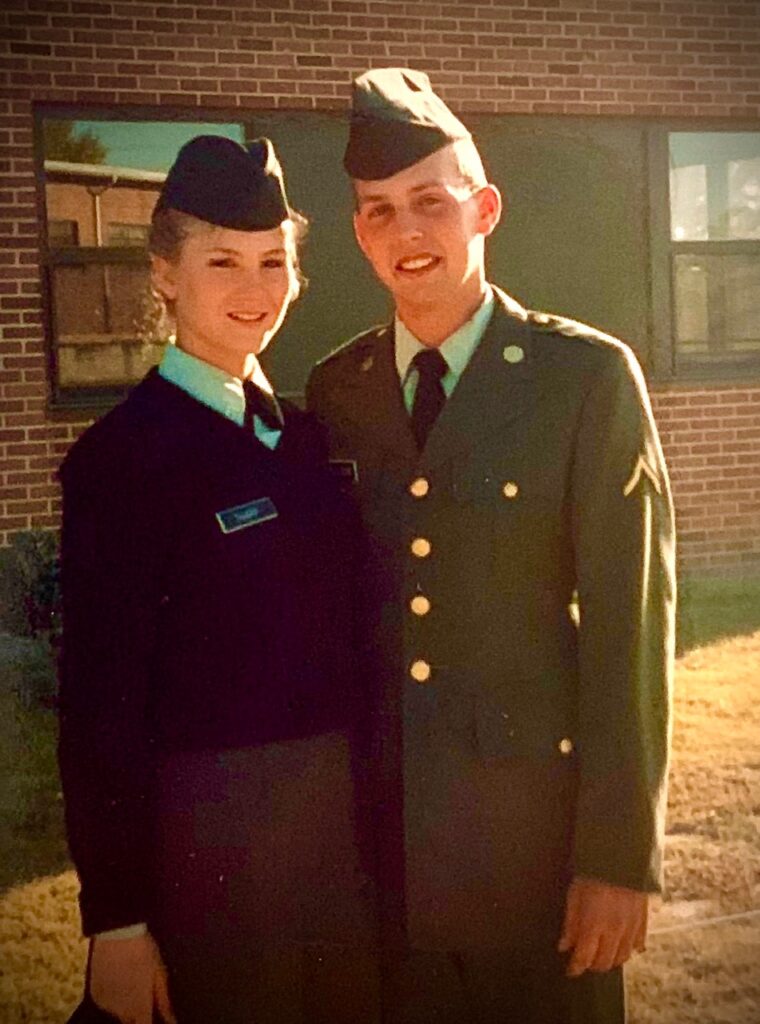Corporal, U.S. Army
Vice President of Donor Logistics, Miracles In Sight

When you grow up in Alaska camping, fishing, and exploring the outdoors, the transition from civilian to military life is far less jarring than it is for most people. Such was the case for Ingrid Schunder.
She spent her childhood roaming the Alaskan outdoors with her pilot father, learning survival skills, and enjoying nature.
Following high school, Ingrid enrolled in college and quickly found out that she wasn’t quite ready for it. She lacked the discipline required to balance scholastics with working, and wasn’t truly getting her money’s worth from her classes.
As fate would have it, following her first semester, her car broke down and the person who pulled over to help her happened to be an Army recruiter. Ingrid enlisted the next day. Growing up in an Air Force family, choosing the Army was an expression of her independence. “I wanted to do my own thing,” Ingrid explains. “I thought the Army would be the bigger challenge.”
One month shy of her 19th birthday, Ingrid reported to Ft. Jackson in South Carolina for basic training. More than anything, she remembers the summer heat and humidity hitting her like a ton of bricks when she walked off the plane – quite a difference from Alaska! During her training she ended up in 94 Bravo as an Army cook.
Following basic training she reported to Ft. Hood in Texas. Because she had experience with large machinery, she ended up driving a lot of big trucks and equipment around base. She also served as the Commanding General’s mess attendant, making sure the Generals got their made to order meals, and was the caterer for color guard special events and ceremonies.
As a woman on base, she’s happy to report that she never experienced any sort of sexism from her commanding officers but acknowledges, “I know that’s not the case of all women in the military.” Any comments or ribbing from peers she was able to shrug off as “par for the course.”
After the Army, Ingrid returned to college while also working and earned both BA and BS degrees. Bilingual in English and Spanish, she turned to teaching in various capacities over the next few years.
While living in Austin, Texas, she made friends with someone who worked at the local tissue bank. Intrigued, she got a part-time job doing tissue recovery. While on recoveries, she’d often see the eye bank person do their role in cornea retrieval, and decided it was more in-line with her interests and skills.
In 1999 she began working as a night and weekend recovery tech. At the Lone Star Lions Eye Bank, she did all she could to learn the various roles and processes throughout the field of eye banking. Knowing Dean Vavra from his slit-lamp teaching sessions, she accepted a job at Miracles In Sight in 2013 as their Supervisor of Recovery Staff. In 2016 she earned her MBA in Leadership. She is now the Vice President of Logistics.
Ingrid says, “The Army teaches you to be adaptable. You need to have a ‘plan B’ since your initial plan often does not pan out. It also teaches you the importance of following the rules, gives you discipline, and shows you to value teamwork.”
Building support systems and trust is part of her management style, and Ingrid notes that, “You need to be able to count on whoever is on your right and on your left. I won’t ask anyone to do anything I wouldn’t do myself.”
She laughs saying that people can often spot her military training without even asking her. “A lot of times it’s my posture – I default to standing at attention. Sometimes it’s the phrases I use like, ‘That’s a no-go’ or ‘squared away.’ Those military terms never leave you.”
Ingrid recommends service to anyone and is trying to convince her son to enlist. If she had discovered medicine earlier in her life, she says she likely would have been a medic in the Army. Even without direct military medical training, her experiences in the service transcend to her daily work duties making her a better eye banker, and Miracles in Sight a better eye bank.


